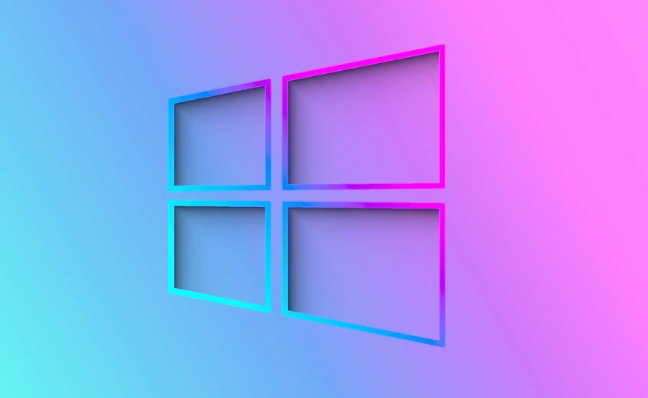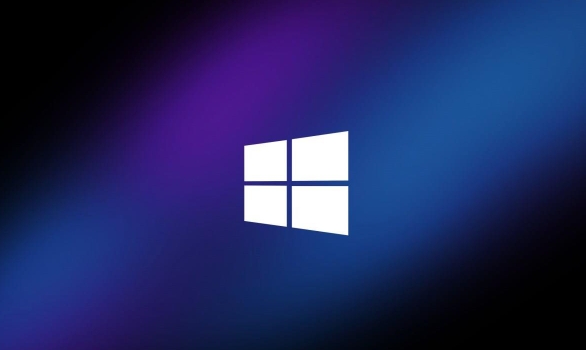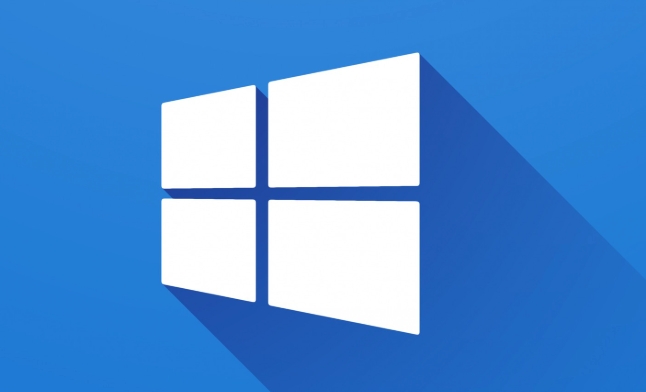Can't find any drives during Windows installation
Jul 26, 2025 am 02:14 AMWhen encountering the problem of "The hard disk cannot be found during Windows installation", first, check whether the hard disk is correctly recognized, enter the BIOS/UEFI settings to confirm whether the hard disk exists. If it does not show, it may be a SATA or M.2 connection problem; secondly, make sure that the boot mode (Legacy or UEFI) matches the installation media, and turn off Secure Boot. 1. If using NVMe solid state or RAID configuration, the motherboard storage driver may need to be loaded manually. 2. The hard disk partition format must be consistent with the installation method. UEFI requires GPT, Legacy requires MBR, and if it does not match, it needs to be adjusted with DiskPart or Rufus. 3. If the hard disk is not initialized or the partition is damaged, you can create a new partition or execute the diskpart command to make it online during the installation process. Most cases can be solved by checking BIOS settings, loading drivers, or adjusting partition format.

It is indeed a headache to encounter the problem of "the hard drive cannot be found during Windows installation". The most common cause is not hardware failure, but setting up or identifying problems. As long as you clarify a few key points, it can be solved in most cases.

1. Check whether the hard disk is correctly identified (BIOS/UEFI settings)
Before installing Windows, first enter the BIOS or UEFI interface to see if the system recognizes your hard disk. The operation method is usually to press the Del, F2, F10 or Esc keys when powered on. The specific one depends on the motherboard brand.

- If the hard disk does not display, it may be a connection problem, such as the SATA cable is loose, or the M.2 is not plugged firmly
- If there is a display but cannot be selected as the installation disk, you may need to switch the startup mode:
- Legacy (legacy BIOS) and UEFI modes must match the format of the installation media (such as whether the USB flash drive is a GPT partition)
- Turning off Secure Boot can sometimes solve the problem
2. Load the hard disk controller driver with the correct driver
Some motherboards (especially NVMe SSD or RAID configurations) require manual loading of the driver to recognize the hard disk when installing Windows.
- Click "Load Driver" on the installation interface and insert the USB drive with the driver
- Find the storage driver for the corresponding motherboard chipset (usually download "Storage Driver" or "RST Driver" on the motherboard official website)
- Note: If it is a dual hard disk (such as an NVMe and a small capacity cache disk), sometimes it is OK if it is only loaded with the main disk drive.
This situation often occurs when a new motherboard is installed with an old version of Windows. For example, if you install Win10 21H2 on a Z790 motherboard, you need to manually load the driver.

3. The hard disk partition format does not match the installation method
Windows installation requires the partition table format (MBR/GPT) of the hard disk. If it is inconsistent, the hard disk will not be visible:
- If it is UEFI booting, the installation disk must be in GPT partition format, and the hard disk must also be in GPT.
- If Legacy is booted, both the installation disk and the hard disk should be in MBR format
If the current hard disk is already GPT but you are booting in Legacy mode, the Windows Installer will not display the hard disk.
you can:
- Use the DiskPart tool to clear the hard disk and convert the format (note: data will be lost)
- Or use Rufus to select the correct partitioning plan when installing USB disks
4. There is a problem with the hard disk itself or is not initialized
Some hard disks are factory-uninitialized, or the previous partition is damaged, causing the Windows Installer to be unable to read.
- You can try using Disk Management or DiskPart to see if it is "Unallocated" status
- If so, you can create a new partition during the installation process and continue the installation
- If the hard disk appears as Offline or Read-only, try running the command prompt with administrator permissions to execute the following command:
-
diskpart -
list disk -
select disk X(X is the target hard disk number) -
online disk -
clean
-
Basically these common situations. Most of the time, you just need to check the BIOS settings, load the driver or adjust the partition format. Don't rush to change the hard drive, start with these details.
The above is the detailed content of Can't find any drives during Windows installation. For more information, please follow other related articles on the PHP Chinese website!

Hot AI Tools

Undress AI Tool
Undress images for free

Undresser.AI Undress
AI-powered app for creating realistic nude photos

AI Clothes Remover
Online AI tool for removing clothes from photos.

Clothoff.io
AI clothes remover

Video Face Swap
Swap faces in any video effortlessly with our completely free AI face swap tool!

Hot Article

Hot Tools

Notepad++7.3.1
Easy-to-use and free code editor

SublimeText3 Chinese version
Chinese version, very easy to use

Zend Studio 13.0.1
Powerful PHP integrated development environment

Dreamweaver CS6
Visual web development tools

SublimeText3 Mac version
God-level code editing software (SublimeText3)
 How to convert MBR to GPT for Windows 11 installation
Jul 05, 2025 am 12:39 AM
How to convert MBR to GPT for Windows 11 installation
Jul 05, 2025 am 12:39 AM
To convert the hard disk from MBR to GPT to install Windows 11, you must first back up the data and confirm that the motherboard supports UEFI; 1. Automatic conversion using Windows installation media: Insert the USB disk and boot from USB, press Shift F10 on the installation interface to open the command prompt, enter diskpart, listdisk, selectdiskX, clean, convertgpt commands to complete the conversion. This method will clear all contents of the disk; 2. Lossless conversion of non-system disks in existing Windows: Use AOMEIPartitionAssistantStandard and other tools to right-click to convert to GPT disk. It is still recommended to backup data before operation;
 This copy of the Install macOS application is damaged
Jul 06, 2025 am 12:26 AM
This copy of the Install macOS application is damaged
Jul 06, 2025 am 12:26 AM
The "InstallmacOS is corrupted" prompt is usually caused by security mechanisms rather than file corruption. Common reasons include unofficial download sources, incomplete files, failure to verify signatures in the old system, or misjudgment of Gatekeeper; solutions include: 1. Forced opening of the installer through terminal commands and starting the USB flash drive; 2. Temporarily closing Gatekeeper verification; 3. Remount the installer and delete kernelcache file repair permissions; ways to avoid problems include prioritizing the use of official channels to download, verify the SHA256 value, selecting a trusted third-party site, and avoiding modification of the installation content.
 How to install Windows on a second monitor setup
Jul 17, 2025 am 02:42 AM
How to install Windows on a second monitor setup
Jul 17, 2025 am 02:42 AM
Connecting a second monitor when installing a Windows system will not affect the installation process, but the following things need to be paid attention to to ensure that the dual screens work normally: 1. There may be only one screen display during the installation process, and the main display device in the BIOS can be adjusted or the interface can be replaced; 2. After the installation is completed, select the display mode through Win P, and adjust the resolution, position and main display in the display settings; 3. If there is a black screen or unrecognizable situation, check the cable, update the driver or enter safe mode to reinstall the driver; 4. When using monitors with different resolutions, set the appropriate zoom ratio and enable the zoom repair option to optimize the display effect.
 How to check if Windows is activated and genuine
Jul 09, 2025 am 12:54 AM
How to check if Windows is activated and genuine
Jul 09, 2025 am 12:54 AM
1. Check the activation status in the settings; 2. Use the command prompt to check the activation status; 3. Check whether there are watermarks or restrictions; 4. Verify whether the system is genuine. To confirm whether Windows is genuine and activated, first open "Settings" → "System" → "About" → "Activate" to view the status, and it is normal to display "Windows is activated"; secondly, you can run the commands wmic and slmgr with administrator permissions to view the license details; if the desktop has a "Activate Windows" watermark, it means that it is not activated; finally, use "Windows Specifications" to confirm that the system type is retail or OEM version, and use Microsoft's official tools to verify the authenticity of the system.
 Windows 10 installation stuck on logo
Jul 06, 2025 am 12:01 AM
Windows 10 installation stuck on logo
Jul 06, 2025 am 12:01 AM
When booting the computer and logging in the Windows 10Logo interface is usually not damaged by hardware, but rather an error in system file loading. 1. Wait for 15 to 30 minutes first to confirm whether it is "fake death". If there is no progress, force restart; 2. Force shut down three times to enter the recovery environment, try to start repair or enter safe mode to troubleshoot driver and software conflicts; 3. Check the hard disk bad channel, clean the memory gold fingers and replace the slot to test the hardware problems; 4. Finally, you can try to reset the computer or install the system in a brand new way to solve it, and give priority to using the official website pure ISO mirror.
 How to back up my Mac before a macOS update?
Jul 15, 2025 am 12:33 AM
How to back up my Mac before a macOS update?
Jul 15, 2025 am 12:33 AM
Before updating macOS, you should back up your Mac. 1. Use TimeMachine to make a complete backup, insert the external hard disk and enable automatic regular backup; 2. Manually back up important files to cloud storage or external devices, and give priority to backing up documents, photos, bookmarks and other key information; 3. Create a bootable macOS installation disk for system repair or reinstallation, prepare a 16GB USB disk and run terminal commands to create. Backup can effectively prevent update failure or data loss, and it is more secure to prepare in advance.
 How to install Windows 11 without a Microsoft account
Jul 06, 2025 am 12:54 AM
How to install Windows 11 without a Microsoft account
Jul 06, 2025 am 12:54 AM
Yes, you can install and use Windows 11 without using a Microsoft account. 1. During the installation process, select "I don't have an Internet" or "Settings for Personal Use" and create a local account to skip the Microsoft account; 2. If you have installed it with a Microsoft account, you can switch to a local account in the settings; 3. You can still access all apps and system functions with a local account, but you will lose the functions of automatic synchronization between devices, cloud backup and some Microsoft store applications. Therefore, skipping Microsoft accounts is a feasible and appropriate option for users who focus on privacy or only use basics.
 How to create a macOS bootable installer in Windows?
Jul 13, 2025 am 01:10 AM
How to create a macOS bootable installer in Windows?
Jul 13, 2025 am 01:10 AM
Making a macOS bootable installer on Windows is not officially supported, but can be implemented through third-party tools. First, prepare a USB drive above 16GB, macOS installation image (.dmg/.iso) and tools such as TransMac or balenaEtcher; secondly, use TransMac to right-click the USB drive and select "RestorewithDiskImage" to write the image, or use balenaEtcher to select ISO files and target disk to write; finally note that the USB drive must be in GPT format, and install Hackintosh, you also need to manually configure EFI boot and use boot tools to bypass restrictions.






